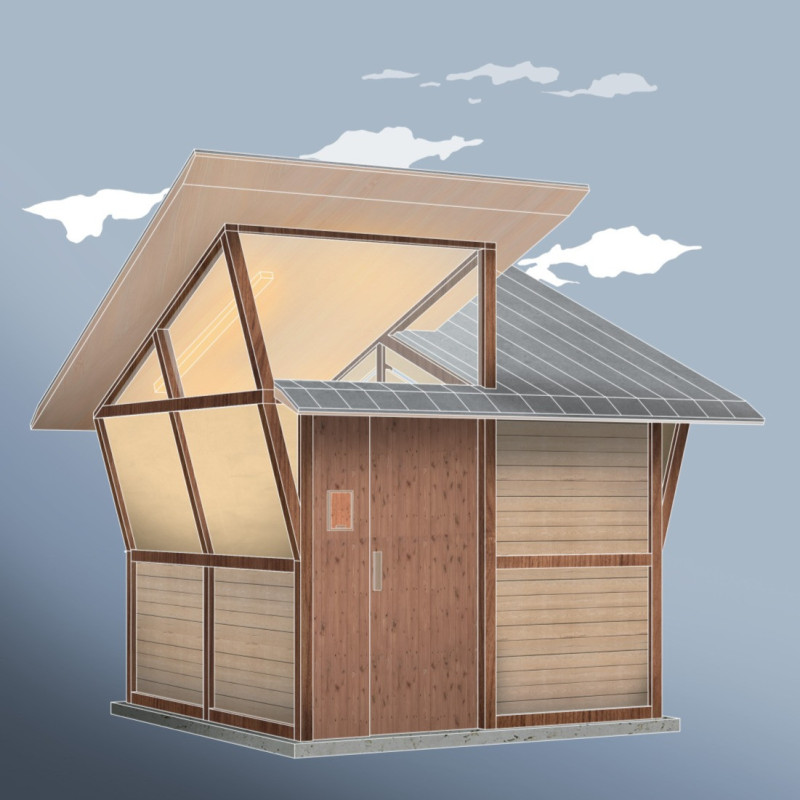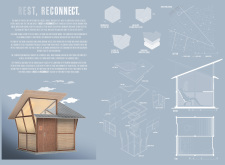5 key facts about this project
The design features a series of cabins that serve as retreats within the urban environment of Tokyo. These cabins aim to provide spaces for individuals to relax and reconnect in a city that is often overwhelming with noise and distractions. The overall design concept seeks to create a calming atmosphere, allowing people to take a step back from their busy lives and find moments of peace.
Concept and Functionality
Each cabin serves as a buffer against the surrounding hustle. A unique aspect of the design is the door mechanism, which requires users to place their phones in a designated box to unlock their entry. This encourages visitors to disconnect from their devices, promoting a sense of mindfulness and presence in the cabin's environment. By engaging with the space, users can experience a break from the constant demands of the digital world.
Spatial Organization
Inside the cabins, the design divides the space into two sections using a translucent panel that has a narrow slit. This element allows for conversation between occupants while preserving their personal space. People can share thoughts and feelings without needing direct eye contact, creating a comfortable atmosphere that supports both solitude and connection.
Materiality
The cabins utilize concrete for their bases, providing strength and stability in an active urban setting. The wooden framing adds warmth that contrasts with the harsher elements of the city. The roof, made from metal, enhances the structure's modern look while also ensuring durability against weather conditions, making the cabins practical for regular use.
Strategic Placement
Located at the intersections of narrow streets and main roads, the cabins are thoughtfully positioned to be easily accessible for those on the move. This strategic placement allows individuals seeking a moment of calm to engage with the cabins as part of their daily routines, increasing the likelihood of use.
As light filters through the translucent panels, it creates a soft glow inside, inviting occupants to pause and reflect, while also appreciating the changing colors of the sky outside.


















































